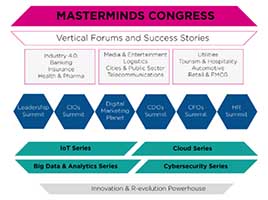Distribution proves itself as a resilient and innovative sector, ready to adapt to the macro-economic climate, with almost 80% of distributors adopting digital transformation strategies.
Sage (FTSE: SGE), the market leader in cloud business management solutions, launches a new report in partnership with IDG entitled: Global distributors transform to adapt, survive and thrive. The results reveal how distributors are addressing challenging external forces with a focus on improving customer service and experience (39%), implementing cloud-based apps (37%), and improving e-commerce capabilities (36%).

Leveraging cloud technology to prepare for the future
Almost 80% of distributors currently have a digital transformation strategy, despite nine in 10 saying implementing new technologies and innovations into distribution operations is a challenge, due to a lack of in-house expertise and high associated costs.
With a heightened need to optimize supply chains and access real-time data analytics to predict future demand, distributors understand the key role technology plays. 42% consider themselves an early adopter of the cloud, and a further 22% say they are innovators – indeed, the majority of distributors are now running core business applications on public cloud, operated by third party providers.
In addition, the adoption of Robotic Process Automation (81%) and Internet of Things (75%) is enabling distributors to prepare for the future and drive greater business-wide efficiency. The benefits realized from digital transformation range from cost reductions (45%) and faster delivery (42%), to improved data security (45%) and better customer service and experience (39%).
The green agenda
With an increasing demand for companies to show their green credentials, 75% of distributors around the world have adopted a circular economy strategy, influenced by consumers, regulations, and new technologies to help improve their environmental impact. Organizations are under pressure to reduce waste output – hence the growing popularity of circular economy business models, where scarce resources are replaced with renewable, recyclable, or biodegradable materials.
For distributors, the shift to circularity is driven by the need to reduce their carbon footprint (39%), address environmental concerns (38%), increase productivity, efficiency, and resiliency (32%), and improve their competitiveness (31%).
However, for almost 75% of distributors, aligning their goals of sustainability and profitability is proving difficult. Many businesses are coming up against friction between these objectives, increasingly trying to reduce waste production and operate local supply chains to reduce mileage, whilst also trying to drive profitability.
Transforming business with data-centric servitization
More than half of distributors looking to increase their service offerings for customers are turning to servitization strategies. Around four in 10 believe they are at, or near, completion of their moderate (57%) or major (28%) servitization transformation strategy.
Servitization is proving to be a rich and profitable source of service innovation – the most frequently realized benefit is credit financing (73%), whereby distributors can take immediate ownership of products and raw materials, and then pay for them over an extended period of time.
Identifying how to best serve customers changing expectations will be increasingly driven by data-centric servitization. Distributors will partner more with technology companies and platforms to derive valuable insights from diverse data sources and capitalize on their new-found understanding of customer needs and market trends.
Rob Sinfield, Vice President of Product for Sage X3, commented:
“Across the globe, distributors are meeting the challenging macro-economic climate head-on, ensuring their business is innovative, resilient, and responsive to change. The sector is realizing the potential to reimagine operations using business cloud applications enhanced with emerging technologies like AI and data analytics. Building agile supply chains whilst embracing customer demands for improved sustainability, distributors are looking to new models such as the Direct-to-Consumer (D2C) distribution model, intelligent sourcing and distribution, servitization, and the adoption of the circular economy to drive growth.”
Jessica Groopman, Industry Analyst and Founding Partner at Kaleido Insights, commented:
“Digital transformation is a technological, cultural, and operational shift through which organizations are leveraging data to deliver value, to innovate with agility and sustained “vitality”. It’s not just about today. It’s about being proactive in looking ahead – because digital transformation is an ongoing journey, not a destination. Emerging technologies such as RPA and IoT, among many others, are even more powerful when they converge. This is where the real opportunities lie for the distribution ecosystem and across the entire value chain.”
To learn more, download the full report.







